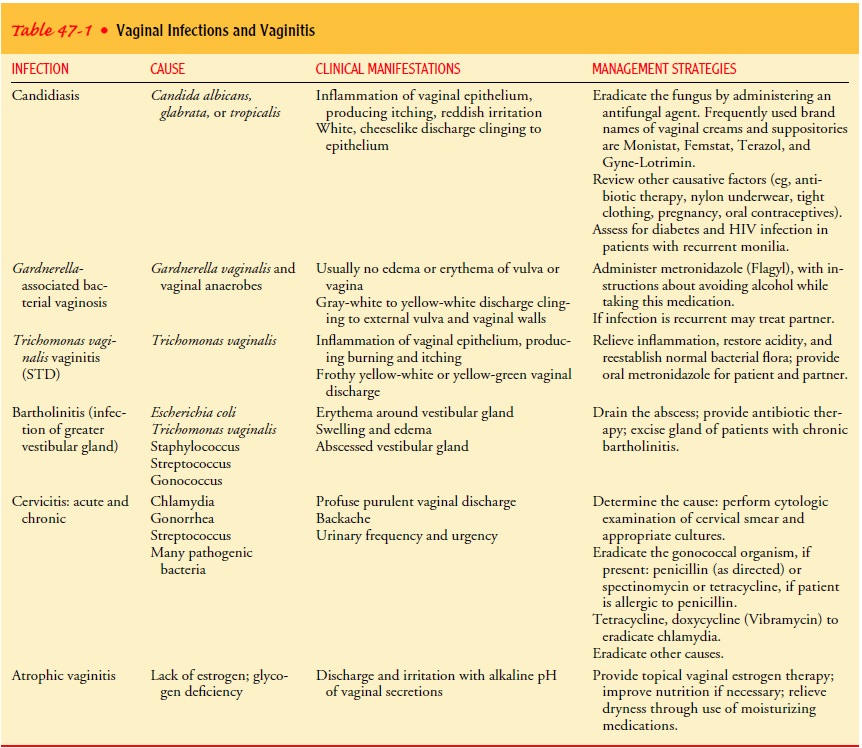Chapter: Medical Surgical Nursing: Management of Patients With Female Reproductive Disorders
Bacterial Vaginosis - Vulvovaginal Infections
BACTERIAL
VAGINOSIS
Bacterial
vaginosis is caused by an overgrowth of anaerobic bac-teria and Gardnerella vaginalis normally found in
the vagina and an absence of lactobacilli (see Table 47-1). It is characterized
by a fish-like odor that is particularly noticeable after sexual inter-course
or during menstruation as a result of a rise in the vaginal pH. It is usually
accompanied by a heavier-than-normal dis-charge. Risk factors include douching,
smoking, and increased sexual activity.

Bacterial
vaginosis can occur throughout the menstrual cycle and does not produce local
discomfort or pain. More than half of women with bacterial vaginosis do not
notice any symptoms. Discharge, if noticed, is gray to yellowish white. The fish-like
odor can be detected readily by adding a drop of potassium hy-droxide to a
glass slide with a sample of vaginal discharge, which releases amines. Under
the microscope, vaginal cells are coated with bacteria and are described as
“clue cells.” The pH of the dis-charge is usually above 4.7 because of the
amines that result from enzymes from anaerobes. Lactobacilli, a natural host
defense, are usually absent. Bacterial vaginosis is usually not a serious
condition, but it has been associated with premature labor, endometritis, and
recurrent urinary tract infection.
Medical Management
Metronidazole
(Flagyl), administered orally twice a day for 1 week, is effective; a vaginal
gel is also available. Clindamycin (Cleocin) vaginal cream or ovules (oval
suppositories) are also effective. If the infection recurs, the patient’s
partner may require treatment. Patients with recurrent bacterial vaginosis
should be tested for gonorrhea and chlamydia.
Related Topics